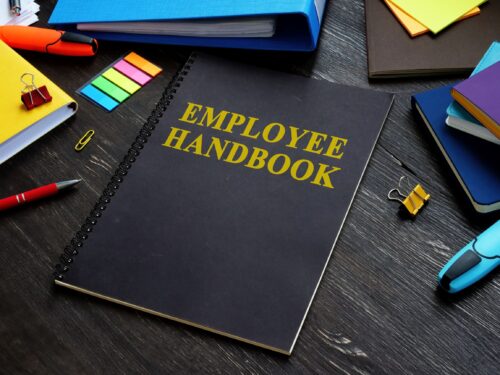Many start-up businesses are so busy with the logistics of starting and opening their business that they may not think about implementing employment policies or procedures, or those steps seem like a lower priority than getting customers in the door. However, as businesses grow and employees are added, a need for consistent policies and procedures often arises. Hopefully this need is not highlighted only when a problem occurs, but all too often that is the case. An employee handbook can prevent problems before they happen.
An employee handbook serves to set forth policies and procedures usually not covered in the employment agreement. For example, an employee handbook can specify things as simple as expected hours of work, dress code, vacation and leave policies, and behavioral expectations, to the more complex aspects of your business such as specific operational guidelines, communications, and bonus opportunities.
For example, if you have reached a point where you will begin providing benefits for your employees such as health insurance, life insurance, and 401(k) plans, an employee handbook is a good place to provide this information to your employees. Details such as: where the plan information can be found and at what point in time the benefits become available to employees can be contained in a central employee handbook.
Another important component of an Employee Handbook is a company policy on harassment and the procedures in place for dealing with complaints or allegations of harassment. In an increasingly litigious society, it is extremely important for companies to have a clear process by which these issues can be dealt with.
Another common pitfall we see is a lack of clarity with respect to employees’ use of the company’s social media pages or things employees post on their personal social media that can reflect on their employer. Having clear policies and procedures governing the use of social media – both at work and outside of work – can prevent an unsavory post from going viral and harming your business reputation.
In fact, employee handbooks can prevent a myriad of business pitfalls, set clear expectations for your employees, ensure all employees are subject to the same standards, and help your business run smoothly. Jones Law Firm recommends that all businesses with employees have an employee handbook in place. This will ensure equal treatment among employees and clear policies in place for handling any problems that may arise. If you need an employee handbook, we would be happy to prepare one tailored to your specific business needs!


